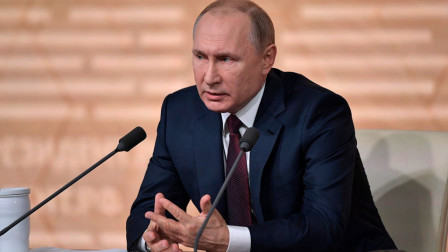
X/@UNGeneva
In a significant move at the United Nations Human Rights Council (UNHRC), India, along with 12 other countries, abstained from voting on Friday as a resolution to hold Israel accountable for possible war crimes and crimes against humanity in Gaza was adopted.
The resolution, backed by 28 votes in favor and opposed by six, called for accountability for Israel's actions and urged countries to halt arms sales to Israel to prevent further violations of international humanitarian law.
#HRC55 | Draft resolution A/HRC/55/L.30 on the Human rights situation in the Occupied Palestinian Territory, including East Jerusalem, and the obligation to ensure accountability and justice was ADOPTED. pic.twitter.com/URttz9IFjv
— United Nations Human Rights Council | #HRC55 (@UN_HRC) April 5, 2024
Countries like Georgia, Japan, and the Netherlands joined India in abstaining from the vote, while the United States and Germany were among the nations voting against the resolution. The resolution was put forward by Pakistan in the 47-member Human Rights Council. Notably, Pakistan was representing the Organisation of Islamic Cooperation (OIC).
According to experts, its abstention aligned with its historical stance on similar resolutions concerning the human rights situation in occupied Palestinian territory.
India previously supported three resolutions emphasizing Palestinian self-determination, highlighting human rights concerns in occupied Syrian Golan, and condemning Israeli settlements in occupied territories.
The resolution follows global condemnation after the deaths of seven international aid workers in an Israeli strike in Gaza. The incident prompted Israel to open new food corridors into Gaza and led to the dismissal of two senior military commanders responsible for the strike.
The @UN Human Rights Council adopted a resolution calling upon all States to cease the sale, transfer & diversion of arms, munitions & other military equipment to Israel to prevent further violations of international humanitarian human rights laws.#HRC55 pic.twitter.com/qp2xSn1quX https://t.co/MWxIic739A
— United Nations Human Rights Council | #HRC55 (@UN_HRC) April 5, 2024
The resolution expressed grave concern over reported human rights violations and breaches of international humanitarian law, including potential war crimes. It emphasized the importance of accountability for such violations to end impunity.
The resolution's adoption reflects mounting concerns over Israel's actions in Gaza, which have resulted in significant casualties. It comes amidst discussions between Israeli Prime Minister Benjamin Netanyahu and US President Joe Biden, suggesting a potential shift in US policy on the conflict.
Despite being non-binding, the resolution aims to increase diplomatic pressure on Israel and potentially influence national policy decisions.
Israel criticized the resolution, accusing the UNHRC of neglecting the Israeli people's interests and failing to address Hamas' role in triggering the conflict with terror attacks last year.








Copyright © 2026 Top Indian News
